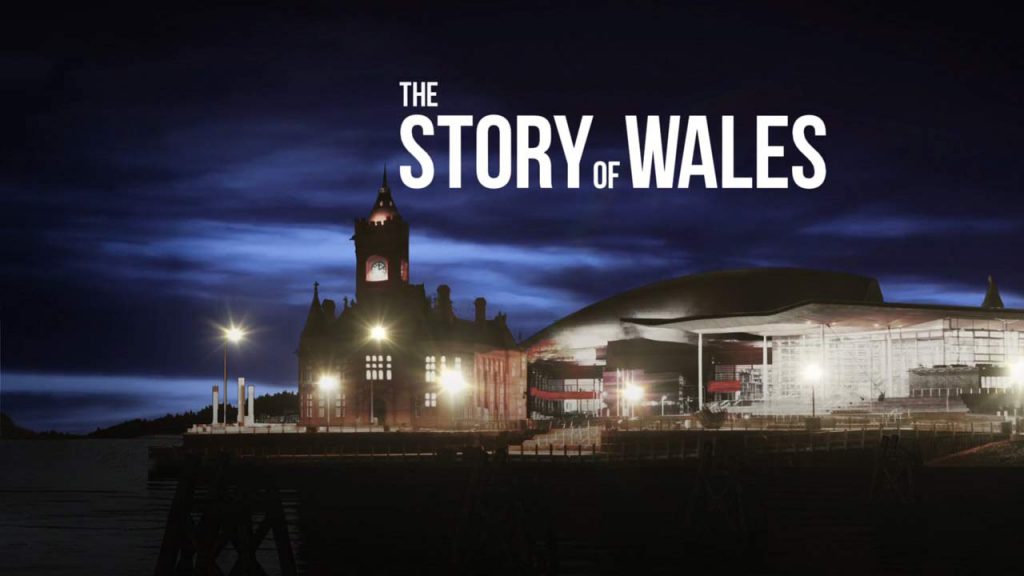The Story of Wales episode 6: Huw Edwards reviews how the country changed after World War Two. The people of Wales make their mark on politics and sport, and the nation’s sense of history is revived.
In the last 70 years, Wales has changed more rapidly than ever. In this final episode, a Welshman battles to set up Britain’s most cherished institution, the British parliament votes to drown a Welsh valley, a new generation of sporting heroes sets the flags waving, and television itself becomes part of the story of Wales. We’re a nation of commuters and consumers, but our sense of history has revived: we are a people with a story – and that story gives us power.
Huw Edwards presents this history of Wales, showing the country in ways it’s never been seen before. From prehistoric times, to power struggles with the barons, and England, through to the industrial revolution and today this history is comprehensive and is a compulsive viewing.
The Story of Wales episode 6
Wales is a country that is part of the United Kingdom. It is bordered by England to the east, the Irish Sea to the north and west, the Celtic Sea to the south west and the Bristol Channel to the south. It had a population in 2021 of 3,107,500 and has a total area of 20,779 km2 (8,023 sq mi). Wales has over 1,680 miles (2,700 km) of coastline and is largely mountainous with its higher peaks in the north and central areas, including Snowdon (Yr Wyddfa), its highest summit. The country lies within the north temperate zone and has a changeable, maritime climate. The capital and largest city is Cardiff.
Welsh national identity emerged among the Celtic Britons after the Roman withdrawal from Britain in the 5th century, and Wales is regarded as one of the modern Celtic nations. The conquest of Wales by Edward I of England was completed by 1283, though Owain Glyndŵr rebelled against English rule in the early 15th century and briefly re-established an independent Welsh principality. The whole of Wales was annexed by England and incorporated within the English legal system under the Laws in Wales Acts 1535 and 1542.
Distinctive Welsh politics developed in the 19th century. Welsh Liberalism, exemplified in the early 20th century by David Lloyd George, was displaced by the growth of socialism and the Labour Party. Welsh national feeling grew over the century; a nationalist party, Plaid Cymru was formed in 1925, and the Welsh Language Society in 1962. Established under the Government of Wales Act 1998, the Senedd (the Welsh Parliament, formerly known as the National Assembly for Wales) is responsible for a range of devolved policy matters.




